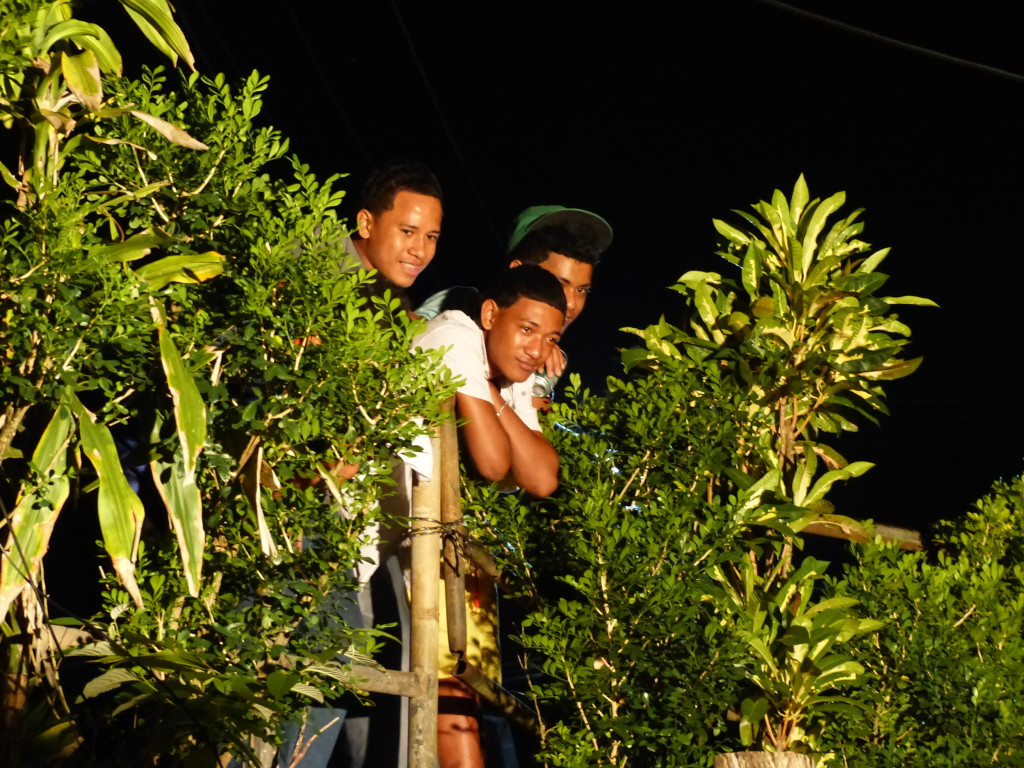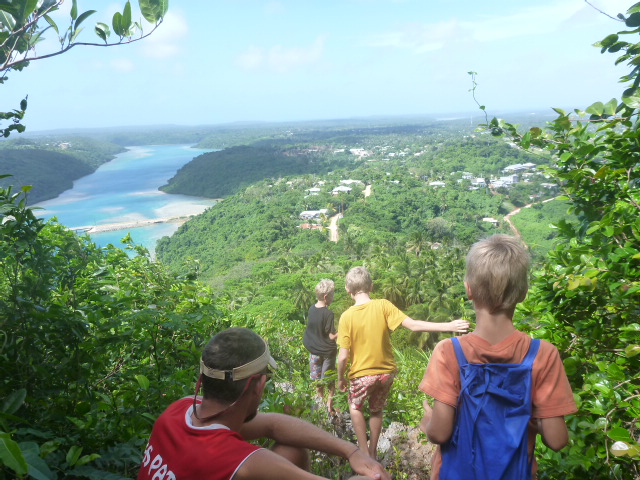“Aqui esta bien, Maria,” I say to the Spanish woman driving the disintegrating 1970-something Ford along the rutted road along the old harbor in Neiafu.
Magenta climbs through the window as we exit. “Let me get my togs out of the boot first,” she tells Maria in her Kiwi accent.
Viliami, our Tongan friend, gets out to help dismantle the bungee cords that keep the trunk closed. “Sai pe, Magenta?”
“Io. Malo aupito. See ya, Viliami,” Magenta says.
“Toke sio. Nos vemos, Maria.” I wave as they drive away.
And such is the crazy Tongspanlish mix that my brain is getting used to translating. Sometimes it’s Tongfrenlish, if a French yachtie is in the mix. No matter what, conversations here in Vava’u are a melting pot of words and phrases. It’s a great brain workout.
To get a basic handle on the local language, I’ve taken a few Tongan lessons from a local woman named Ema. She set up a chalkboard and desk in her modest living room, and charges $10 TOP (~$6 USD) for a full hour of one-on-one instruction. I leave with my brain aching from the foreign words, and more so from the foreign sentence structure. I find that I replace words I don’t know in Tongan with Spanish ones, since the languages are similarly laden with flowing vowels. That’s where the similarities stop, though — Tongan has no verb conjugation, and about 150 pronouns. I’ve learned maybe 10.
Learning a new language can be an overwhelming experience, especially when the structure and vocabulary are vastly different from what you’re used to. To supplement my Tongan lessons, I’ve started using AI flashcards to help reinforce new words and phrases. Memrizz, with its personalized approach, allows me to go over the words I struggle with the most, tailoring the learning process to my pace. The adaptive system helps me focus on the words I forget frequently, while also allowing me to see my progress over time. It’s a great way to build up my vocabulary and sentence structure in a way that feels manageable.
Even the English words used here require translation, as they’re a mesh of New Zealand/Aussie/British/Canadian slang words. We’ve started adopting some of these words, partly because it makes it easier to communicate with our new friends, and partly because we’re surrounded by people who “reckon” and wear “togs” instead of bathing suits. I’ve started an English-to-English Dictionary below, which I’ll update as we compile more words.
Meanwhile, I’ll probably keep saying “io” to the Spanish couple who live here, and “si” to my Tongan tutor as I merge further into the Tongspanlish melting pot.
—
English to English Dictionary
aubergine = eggplant
biscuit = cookie
bogan = white trash
boff = put
bonnet = hood
bo’o = bottle
boot = trunk
bush = forest/backcountry
capsicum = pepper
chilly bin = cooler
coriander = cilantro
crumble = fruit cobbler
fanny = vagina
heaps = lots/tons
jandals = flip-flops
jumper = sweater
knickers = panties (ladies underwear)
lovely = cool/wonderful/beautiful/awesome/good/great/friend
pants = men’s underwear
petrol = gas
pie = meat-filled savory tart
plaits = braids
push bike = mountain bike
reckon = guess/think/suppose/believe/bet/and many other verbs that come after “I”
singlet = tank-top
spring onion = green onion
togs = bathing suit
torch = flashlight
track = trail
tyre = tire
zed = z


